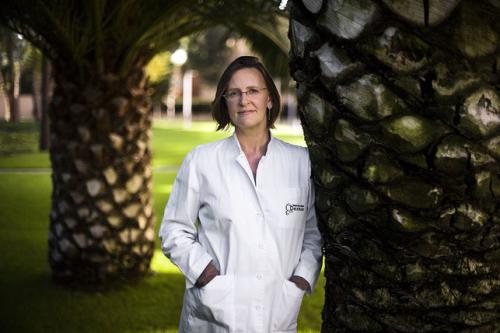
Early menopause, loss of ovarian function due to chemotherapy, removal of the ovaries, or advanced age are just some of the reasons why a woman may be physically unable to become a mother. Now, however, egg donation has changed the situation. This technique allows eggs to be transferred from one woman to another (donor and recipient): the donor egg is inseminated and implanted in the uterus of the recipient.
Spain has one of the highest rates of egg donations. In Catalonia, there are 33 centres offering in vitro fertilisation. Of these, 27 are private and 6 are public. However, there are many public centres that do not have egg donation programmes.
Moreover, in Catalonia, the waiting list for complex assisted human reproduction (AHR) techniques - like in vitro fertilisation (IVF) - is 22 months at public centres, compared to just one month in private clinics. This is a factor in the decision of many recipients to opt for private medicine.
Doctor Elisabet Clua, Head of the Oocyte and Embryo Donation Programme at Dexeus Women's Health, explains that the profile of donor that they receive is “middle class and money is not their main motivation; they are often already mothers themselves." Nonetheless, it is a long process with lots of medical tests to stimulate the ovaries, and donors must undergo an operation, so some form of financial compensation is always recommended “for the inconveniences caused," explains Dr Clua.
The Spanish Bioethics Advisory Committee recommends a compensation of 900 to 1,000 Euros, although this sum is not mandatory. Clua associates the donations with the culture of altruism and donations that exist in Spain, “particularly in relation to blood and organ donations". This has translated into a 10% rise in the number of donors since 2008 and almost 9,000 women donating eggs in Spain each year.


